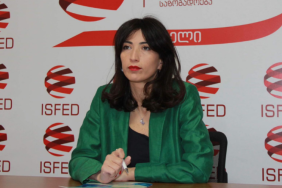International Society for Fair Elections and Democracy (ISFED) is against new election procedures for the head of the Central Election Commission (CEC) and its professional members.
ISFED says that Parliament's Committee of Legal Affairs has already voted in favor of the proposed changes which will simplify the election process, and if previously it was required to hold four votings, now only two votings will be enough.
In particular at first, the support of at least two-thirds of the full membership of Parliament is required. If the number of such candidates turns out to be more than the number to be elected, the candidate with the best results among them will be considered elected, and if the winner is not determined due to the equality of votes received by the candidates, another ballot will be held immediately to determine the winner.
“If all vacancies are not filled by voting, the remaining candidates who won the support of a majority of the full membership of Parliament in the last ballot will be voted again. In the re-election, the candidate who will be supported by the majority of the full composition of the Parliament will be considered elected. The amendment also abolishes the deadline set in the period between voting,” ISFED says.
ISFED says that the ruling party should show the political will to make a consensus-based decision ‘instead of focusing on speeding up and simplifying the process.’
It says that the opposition should get involved in the process of selecting the CEC chairperson and professional members, to nominate and consider a candidate acceptable to all, ‘in order to contribute to the achievement of the main goal - to increase confidence in the CEC.’





